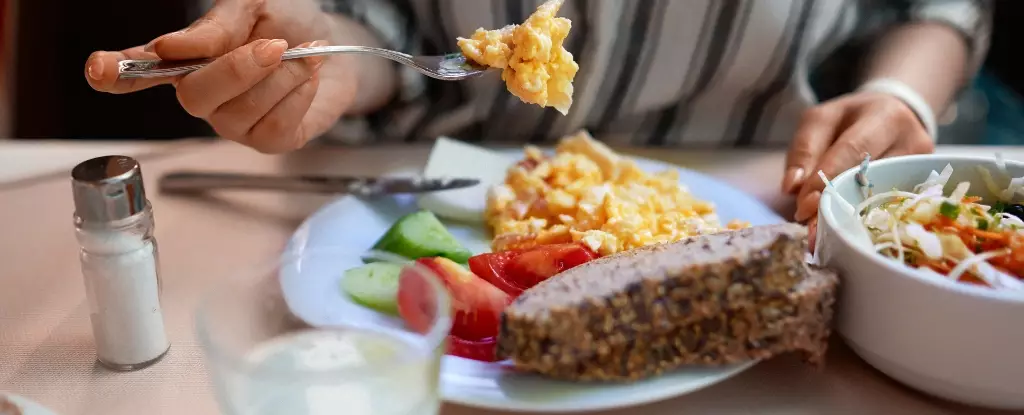In today’s health-conscious society, weight loss drugs like semaglutide—marketed under names such as Ozempic and Wegovy—have gained immense popularity. However, intriguing survey insights reveal a counter-intuitive truth: many individuals express a distinct preference for achieving weight loss without resorting to pharmaceuticals. This raises an important question: is it possible to mirror the effects of these medications through natural dietary strategies? Recent research suggests that the answer is a resounding yes.
Emerging studies indicate that various nutrients and dietary methodologies can effectively simulate the benefits of semaglutides. To begin with, increased intake of dietary fiber and healthy fats, specifically monounsaturated fats, plays a significant role in creating a sense of fullness. Foods rich in fiber, such as beans and whole grains, along with healthy oils from sources like avocados and olives, are not just wholesome choices; they are pivotal in influencing our hormones related to appetite control.
The Hormonal Connection: GLP-1 and Its Role in Weight Regulation
At the heart of this nutritional approach lies a critical protein known as GLP-1 (glucagon-like peptide 1). This hormone is a natural satiety signal that communicates to our body when we’ve had enough to eat. Semaglutide drugs effectively enhance the level of GLP-1, prolonging the sensation of fullness while simultaneously inhibiting the action of DPP-4, an enzyme that breaks down GLP-1. This dynamic combination is what makes pharmaceutical interventions so effective for many individuals looking to reduce their food intake.
However, the magnificent aspect of nutrition is that it can also foster an increase in GLP-1 levels, albeit through different mechanisms. Research indicates that fiber-rich foods, when fermented by gut bacteria, produce short-chain fatty acids that in turn stimulate GLP-1 secretion. This reveals a fascinating synergy between diet and gut health, emphasizing why fiber should not be overlooked in our dietary plans.
The Impact of Dietary Fat on Satiety
Fat has long been a misunderstood component of our diets. Among the types of fat, monounsaturated fats hold a special place when it comes to health, particularly in their role in GLP-1 production. Studies demonstrate that consuming foods like olive oil as part of meals can significantly boost GLP-1 levels, making them more effective than fats such as butter. Notably, pairing foods—such as bread with avocado instead of butter—can further enhance our hormonal response, leading to greater satisfaction after meals. This is not only a victory for taste but for health, reinforcing the argument against the unnecessarily restrictive diets often pushed by popular culture.
More Than Just What You Eat: The Science of Meal Timing and Sequence
In addition to carefully selecting what we consume, how we consume it plays an equally crucial role in weight management. The sequence in which we eat our foods has proven to impact GLP-1 levels significantly. Consuming protein before carbohydrates, for instance, boosts the satiety hormone more effectively than the reverse order. These insights suggest that our traditional eating habits could benefit from modernization.
The timing of meals is another critical factor worthy of attention. Research supports the age-old adage of eating breakfast like a king—highlighting the enhanced hormonal responses when our largest meal occurs at breakfast compared to dinner. In a world where late-night snacking is prevalent, this evidence lends credence to reevaluating our approach to meal times and sizes for better weight management.
The Significance of Eating Practices
Speed and manner of eating can profoundly affect our hormonal responses. Engaging mindfully with our meals—savoring each bite, chewing thoroughly, and avoiding rushed meals—can enhance our body’s satiety signals. Research shows that consuming ice cream over a longer period results in higher GLP-1 levels compared to a rapid feast. Interestingly, initiating our meals with vegetables may also mitigate the effects of hasty eating, driving home the point that both our food choices and eating behaviors are paramount in our journey toward health.
The Superiority of Dietary Approaches Over Medications
While medication may serve as a quick fix for weight loss, the benefits of dietary strategies extend beyond just appetite control. The Mediterranean diet, known for its protective effects against various chronic diseases, highlights that a nutrition-focused approach lowers the risk of heart-related issues more efficiently than semaglutide medications. Although medications might facilitate faster weight loss initially, the long-term health benefits of a well-rounded, nutritious diet cannot be overstated.
Natural weight loss, though not devoid of challenges, emerges as a holistic, sustainable solution. By emphasizing the importance of nutrient-rich foods, mindful eating practices, and optimal meal timing, individuals may successfully navigate their weight loss journeys without the reliance on pharmaceutical interventions. The path forward lies in embracing the intricacies of our body’s biology and making informed, health-conscious dietary choices that reflect not only our weight loss goals but our overall well-being.

